Question And Answer
Publications
Articles, publications, books, tools and multimedia features from the U.S. Institute of Peace provide the latest news, analysis, research findings, practitioner guides and reports, all related to the conflict zones and issues that are at the center of the Institute’s work to prevent and reduce violent conflict.

Event Extra: The Untold Story of a U.S. Attempt to Forge Israel-Syria Peace
In a new USIP book, Ambassador Frederic Hof tells the story of a secret U.S. effort to broker peace between Israel and Syria between 2009-2011. Just as that effort seemed to be making important progress, Syrian President Bashar al-Assad's regime began to violently suppress Syrian protesters, scuttling the chance for peace. Hof discusses what the foundation of Israel-Syria peace would have looked like, the pre-2011 perceptions of Assad as a "reformer," President Biden's trip to the Middle East and how the international community should deal with the Syrian dictator today.

Event Extra: Rethinking War Amid the Dire Global Food Crisis
Russia’s war in Ukraine has deepened a global food crisis that has left hundreds of millions facing acute hunger. Beyond the humanitarian challenges this crisis presents, it could stoke violence and conflict in fragile regions. U.N. World Food Program Chief Economist Arif Husain discusses the state of global hunger, why it’s vital that we rethink our response to conflict and what can be done in the immediate to stave off the worst.

Event Extra: Afghanistan’s Media Landscape Amid Taliban Rule
Ayesha Tanzeem, the director of Voice of America’s South and Central Asia Division, explains how Afghanistan’s media landscape has changed in the last year and a half, how media organizations are fighting back and what the international community can do to help protect media freedom in Afghanistan.

Event Extra: Syria’s Brutal Civil War and the Elusive Quest for Justice
In 2016, the U.N. General Assembly established the International, Impartial and Independent Mechanism for Syria (IIIM), after vetoes in the U.N. Security Council prevented referral of the Syrian situation to the International Criminal Court. IIIM Head Catherine Marchi-Uhel discusses the obstacles to this work, the progress made to date and what lessons it can provide for delivering accountability and justice in other conflicts.

Event Extra: Taliban Rule Takes Profound Toll on Afghan Women and Minorities
This week marks the one-year anniversary of the Taliban’s takeover of Afghanistan. Despite pledges of moderation and reform from some Taliban factions, over the last year they have reinstated many of the harshest policies from their 1990s emirate, pushing women out of public life and brooking no dissent. For many Afghans — especially women, girls and ethnic and religious minorities — the threat of violence looms over daily life. U.S. Special Envoy for Afghan Women, Girls and Human Rights Rina Amiri discusses how Afghans' lives have changes over the last year, what brave Afghan women are doing to protest the rollback of their rights, and how the United States and international community can help.
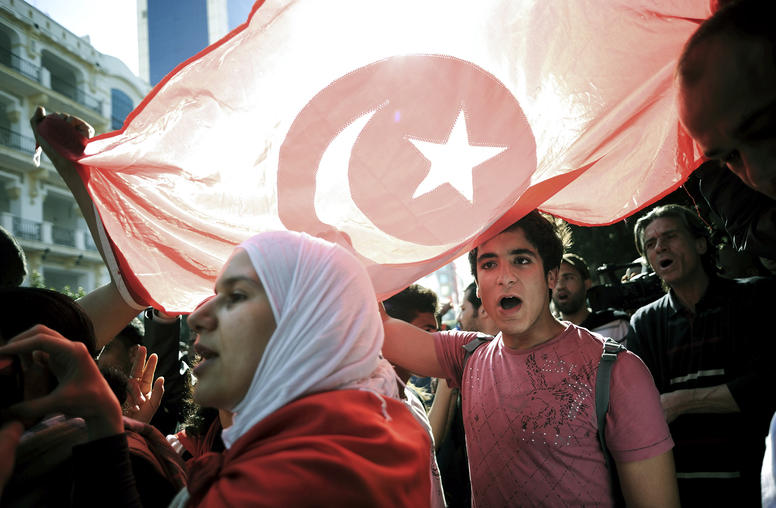
Tunisians Show Support for Democracy, Disillusionment with Ruling Elite
The surprise results of Tunisia’s first-round presidential election gave a clear message to the country’s political establishment: Tunisians want change and they want it now. Neither of the two winning candidates set to face off in the second round have ever held political office nor are affiliated with the political parties that have led Tunisia’s transition. Many of the issues that sparked the uprising eight years ago—like corruption and unemployment—continue to bedevil the North African nation. Yet the first-round vote demonstrates that Tunisians aren’t willing to give up on democracy and want new leaders.
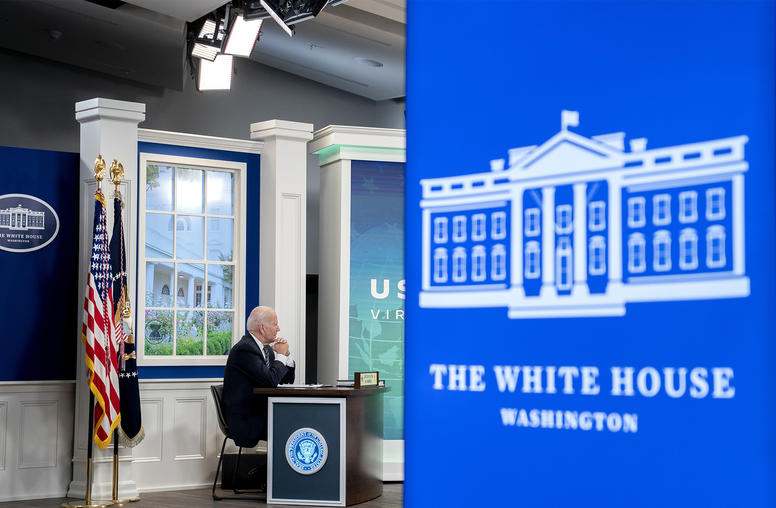
U.S.-ASEAN Summit Focused on Building Ties, Not Countering China
President Joe Biden attends a virtual U.S.-ASEAN Summit meeting, from the South Court Auditorium of the Eisenhower Executive Office Building on the White House grounds in Washington on Tuesday, Oct. 26, 2021. (Stefani Reynolds/The New York Times)
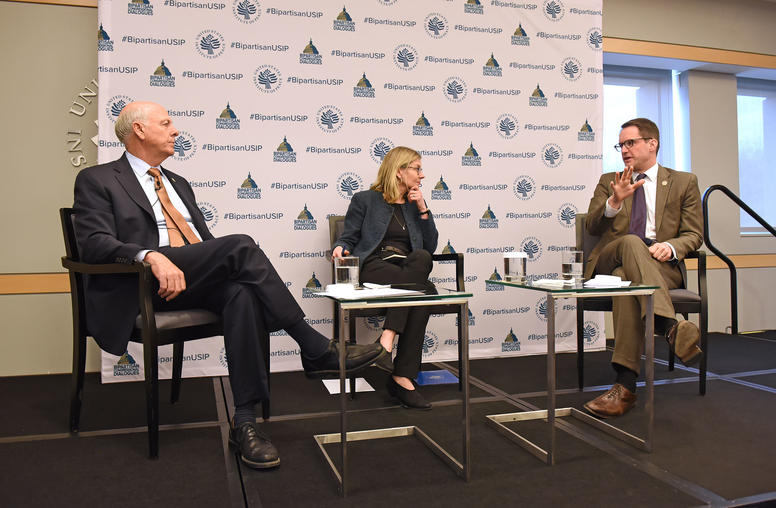
Evolving Cybersecurity Threats Require Bipartisan Approach
We live in an age of immense technological innovation and disruption. While these technologies make our lives easier, criminal groups and terrorist networks have the tools to exploit them, as policymakers struggle to keep up with rapid pace of change. Terrorist groups like the Islamic State and rogue regimes like North Korea employ these technologies to illicitly finance their operations, often using cryptocurrencies in order to evade detection. Despite the partisan rancor in Washington, Republican and Democrat members of Congress are coming together to counter illicit financing and wrestle with these emerging policy challenges.
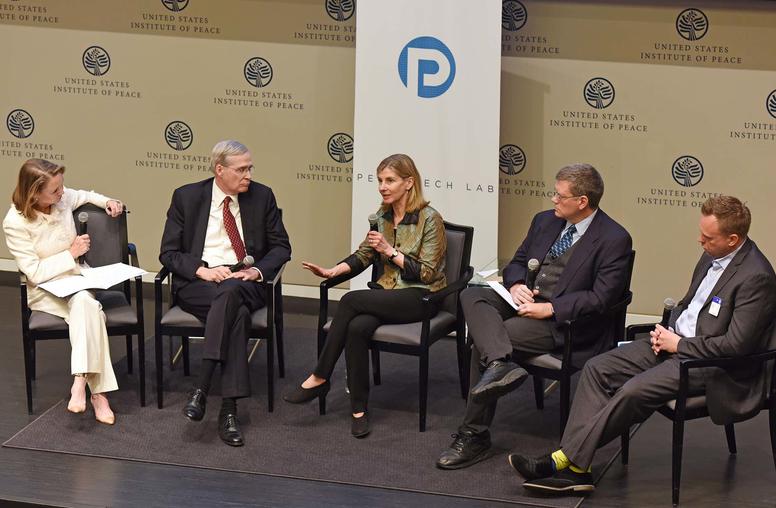
How 'Peace Tech' is Changing Global Conflict
As technological innovation develops at a blistering pace, it has fundamentally altered how conflicts develop and play out, and how peacebuilders prevent and mitigate violence. Throughout history, technology has driven warfare and international security.
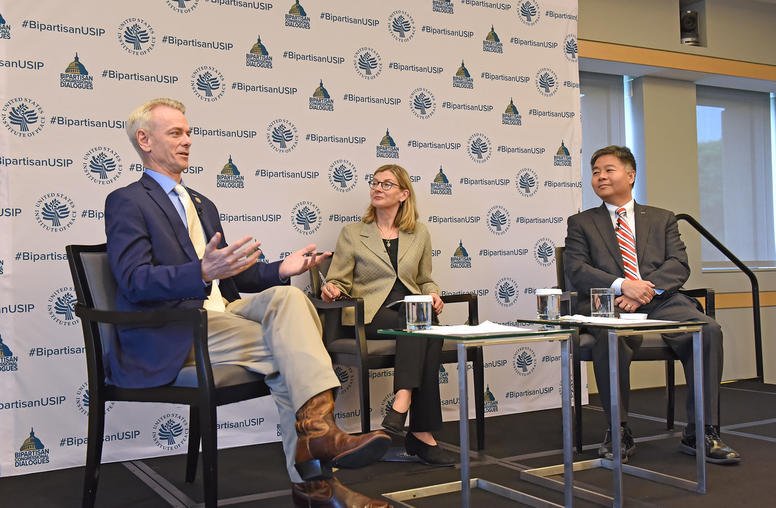
North Korea and the Fine Print of a Deal
With significant uncertainty surrounding the proposed Trump-Kim summit scheduled for June 12 in Singapore, South Korean President Moon Jae-in is in Washington this week to ensure the historic meeting happens. Whether its sanctions relief or appropriating peacebuilding funds, the U.S. Congress will play a pivotal role in any settlement with North Korea. Amid questions about Pyongyang’s intent and past negotiating behavior, Steve Russell (R-OK) and Congressmen Ted Lieu (D-CA), both military veterans, offered their support for the Trump administration’s participation in the summit during a bipartisan dialogue at the U.S. Institute of Peace.